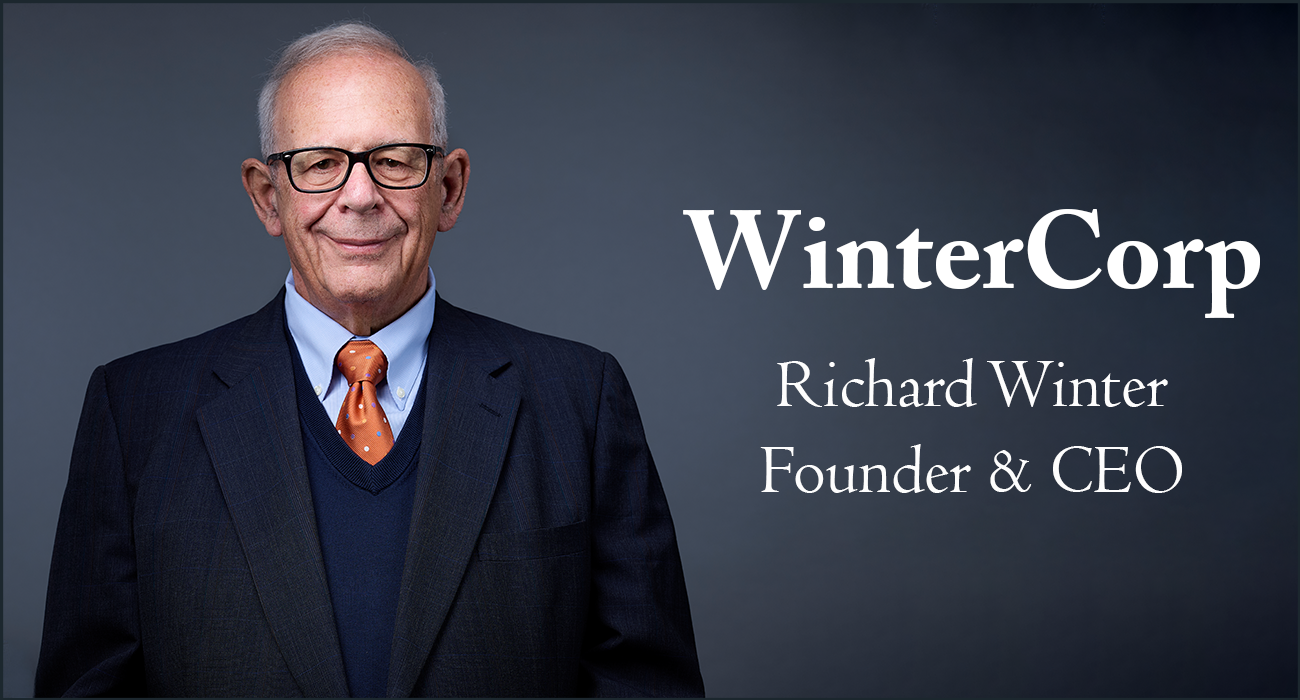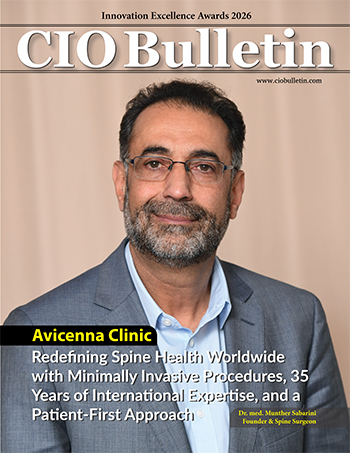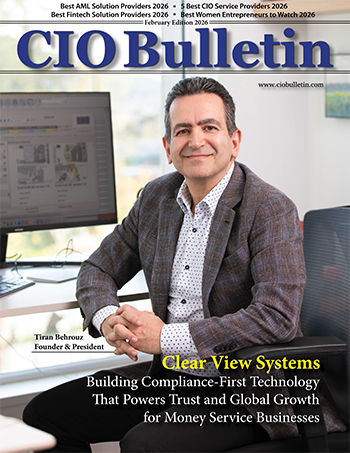September Monthly Edition 2025
CIO Bulletin

Success in today’s data-driven world doesn’t come from collecting information—it comes from knowing how to harness it. Organizations succeed when their data moves fast, scales effortlessly, and fuels innovation. But the wrong choice can cost millions, disrupt operations, and leave businesses struggling to keep up. The stakes are high, and the pressure to modernize, migrate, or optimize is greater than ever. That’s where WinterCorp steps in—not just as consultants, but as trusted partners who turn data challenges into strategic wins.
WinterCorp empowers organizations to build, optimize, and future-proof their data ecosystems. Unlike generic advisors, they don’t just help select the right platform—they solve the toughest problems, whether it’s migrating to the cloud, modernizing a data warehouse, or scaling for AI. Their expertise ensures businesses avoid crucial mistakes like exploding costs, stagnant or siloed data, and unacceptable performance—all of which sabotage business outcomes.
With a fact-driven approach, WinterCorp combines deep technical knowledge with real-world experience. They assess needs, quantify requirements, and craft tailored strategies that balance agility, performance, and cost. Their work spans startups to global enterprises, helping executives navigate complex decisions—even when it means rethinking architecture or adopting an additional platform for new demands, such as AI workloads.
What sets WinterCorp apart is their engineering approach based on testing, measurement, and modeling. They don’t just theorize; they engineer solutions that unlock data’s full potential. From optimizing cloud data warehouses to designing high-performance architectures, they’ve guided 50+ enterprises toward smarter, faster, and more scalable systems. Their mission is simple: to turn data chaos into clarity, and to power smarter decisions with every step.
The man behind the mission, Richard Winter, Founder and CEO of WinterCorp joined CIO Bulletin for an exclusive conversation, offering a compelling look into the company’s vision, values, and impact. With clarity and depth, he shared how WinterCorp helps its clients not just adapt to the data-driven world—but lead it.
Interview Highlights
Can you share the origin story of WinterCorp? What inspired its founding, and how has its mission evolved to address the growing complexities of data and AI ecosystems?
In the early 1990s, I was serving as the CTO of a pioneering database software vendor, Computer Corporation of America. Our product was in use on 1,000 databases around the world, including many of the largest databases in production at that time.
Customer executives began to seek my advice on major questions of data architecture and strategy, often concerning first-of-a-kind technical challenges linked to major business opportunities. I began directing projects to help them get answers, typically involving measurement, modeling, and/or quantitative analysis.
Through this work, I was able to help customers solve some of the toughest problems in the data management field and achieve critical business objectives that were otherwise unattainable. I didn’t see other consultants approaching these challenges in the same way.
This led me to found WinterCorp to provide similar services for customers facing demanding data requirements, usually involving large-scale and complex analytics. Since then, we have always operated on the frontiers of database scale and advanced analytics, often evaluating new architectures and technologies in light of the requirements of specific customers. In the last 15 years, this has often involved the application of predictive AI to large databases and, more recently, generative AI.
Throughout this thirty-year period, I have found that there are always customers whose business interests and strategies lead them to tackle problems in data and analytics that are in some way going beyond prior experience. In these situations, there is no pre-existing recipe for success. We collaborate with customers and vendors to find the best option, always considering the tradeoffs on a quantitative basis. We have developed deep expertise in design, analysis, measurement, and modeling that enables us to guide such customers to success in these challenging projects. And there is always a need for that capability.
WinterCorp offers a wide range of services, from data platform architecture to cloud strategy. Could you highlight the core offerings that set WinterCorp apart in the competitive landscape of data and AI consulting?
Actually, we are very specialized, with a deliberately narrow focus. All of our services relate directly to the challenges of engineering and architecting large-scale, complex analytic databases and systems. We think of these as the skyscrapers or leading edge factories of the digital world. Ninety percent of companies never build a digital skyscraper or an advanced knowledge factory and therefore do not use our services. But companies that are involved with analytics or AI on a large scale – or in a very strategic way – are especially well served by the approach we take.
What sets us apart is our quantitative approach to both requirements and solutions. We don’t guess – we test, experiment, measure, analyze, and model. We eliminate options that do not meet the customer’s needs, that are too costly, or that are too risky. We recommend solutions that we have proven will get the customer where they want to go. When risks are unavoidable, we work out how to limit, manage or contain them. Our tests are large scale and highly realistic, so that we can identify and resolve scalability issues that others often miss.
Your services highlight avoiding pitfalls in solution design. What are the most common mistakes you see organizations make in their data platform strategies, and how does WinterCorp’s fact-based, measurement-driven approach mitigate these risks?
In the last few years, we have seen customers wrongfully assume that popular data platforms are scalable under all circumstances. This is far from the truth for larger and more data-intensive customers, even for the products marketed as scalable or elastic.
It often turns out that most of the popular data platforms scale well for simpler queries but do not scale efficiently when the queries, analytics, and workloads become larger, more complex, or more dynamic. The scalability issues are often specific to the requirement, so a platform that works well for one customer may not work well for the next one.
This effect is especially critical for AI. As customers implement their AI strategies on enterprise data at scale, many are going to find that their current data architecture is inadequate.
We have introduced services to help customers assess their data architecture in light of their direction with AI. If their existing architecture will get them where they want to go, we demonstrate that and advise them on how to optimize. If their AI requirements exceed the capabilities of their existing architecture, we advise them on how to modify or extend it so as to be successful. Because of our quantitative approach, we are able to be clear about the costs, benefits, risks, and expected returns of the various architectural and strategic options.
Because we are independent and do not partner with vendors, we are able to advise customers from a financially disinterested perspective. This is a kind of advice, analysis and testing you cannot get from a vendor – and you cannot get it from any consultant relying on vendors for after market business.
Our quantitive approach and focus on the intersection of AI and enterprise data architecture gives customers the information to make appropriate provisions for what are usually rapidly growing AI-related workloads.
With the rise of diverse data platforms, how does WinterCorp guide clients in choosing between a data lake, data warehouse, or hybrid solution? What key metrics or considerations drive your recommendations?
In our view, every customer has – or soon will have – a combination of the data warehouse and the data lake – what is now often called a lakehouse. Virtually all customers now store and analyze a great variety of data, only a portion of which is tabular. Further, data varies in its degree of reuse across the enterprise. So, for most customers, data is stored in different forms, different storage structures, and different devices, depending on its nature and use.
For the core tabular – or near-tabular – data that is heavily reused in many applications across the enterprise, a data warehouse is often the best option. For much other data, something more like a data lake is the best option.
Going forward, I believe that Open Table Formats will have a large role in the data architecture for many customers.
We see architectural diversity as well with respect to deployment modes. We have in depth knowledge of cloud, hybrid, on prem and multi-cloud architectures. We can help customers select among these options, as well as implement any of them. Increasingly, we are now seeing globally distributed database requirements, including those involving data sovereignty.
As AI and machine learning workloads grow, scalability becomes critical. How does WinterCorp ensure that data architectures are future-proofed to handle the demands of large-scale AI/ML applications, especially in IoT or time-series data scenarios?
AI workloads are going to be different from what customers have seen in the past, and they bring new, massive challenges to the data architecture. This is also the case for advanced analytics, such as those seen in IoT, time-series, and other specialized types of data.
In all of these cases, we first build a model of the requirements: roughly quantifying the scale and structure of the data that will be created; then we do the same with the workloads and the operating requirements. There is always some uncertainty about these factors, but we have techniques for developing good order-of-magnitude projections.
We then use this information, along with any data we can extract about the characteristics of existing data and workloads, to create a digital twin of the expected database and workloads. We then run tests – at as large a scale as we realistically can – to gain insight into the behavior of platforms and architectural options. This approach, coupled with modeling, gives us the basis for sound recommendations. We apply this to AI by testing with the actual platforms and AI capabilities under consideration, employing others often miss that are as realistic as we can possibly make them.
Streaming data and real-time analytics are transforming industries. Can you share an innovative solution WinterCorp has designed for a client leveraging streaming data, and how it addressed their unique business needs?
Client Spotlight: Delivering Real-Time Intelligence for a Nation-Wide Freight Network
The Problem
We once had an engagement with a very large freight company – a less-than-load trucker with operations throughout North America. Each shipment – which could consist of anything from a single package to a truckload – was barcoded. Every time a shipment moved, an event in the database recorded the time and location of the shipment before and after the move. This was near-real-time tracking, with a latency of under two seconds. There were millions of freight movements a day. This freight tracking database similarly recorded every movement of a vehicle, every action by a driver, and every significant event at every freight terminal.
Because these international rivers of freight were always flowing, the database could be down only once a year for 24 hours on a certain designated day. Otherwise, no matter what might fail, the database had to remain available for both queries and updates.
In addition, there was a requirement to run complex analytics on the live data with rapid response. One example of an interesting query: exactly two hours before the next shift, tell each terminal manager how much freight of each class (e.g., hazardous, fragile, package, heavy…) will arrive at their terminal during the coming shift. This is so the manager could decide how many workers of each type to bring on for the coming shift.
WinterCorp to the Rescue
In this engagement, the customer CIO told us that he believed the company’s greatest opportunity to differentiate its services in the coming strategic period was in the data and analytics capability of this freight database. The leadership group had many ideas for new services with unique advantages, rooted in the real-time data and analytics of the freight operation.
We helped this client identify the one platform at the time that could be proven to satisfy all the requirements. We did this via careful analysis of the requirements; thoughtful development of selection criteria; the creation of a highly realistic benchmark, which the vendors ran; and then in-depth analysis of the benchmark results, the proposals, and the vendor roadmaps.
The Result
At the conclusion of our engagement, we were able to recommend the best option with confidence that it would position the customer for its next-generation business strategies.
What are WinterCorp’s long-term goals for shaping the future of analytic data ecosystems? How do you plan to innovate or adapt to emerging trends in AI, cloud computing, and scalable data management?
Fundamentally, our services help customers select the platforms and create the data architectures that make it possible for them to do what has never been possible before. We do this by helping them clarify their business visions and strategies; collaborating with them on the definition of requirements; and then by testing, measuring, evaluating, and modeling architecture and solution options. I believe that we will increasingly use AI in each of these activities to do them better, more efficiently, more quickly, and more accurately than in the past.
To provide one example: it used to require a team to generate the data to be loaded into a database in a realistic benchmark for a major enterprise. Using AI, I believe that one person will be able to get a better result, much faster, and with less effort. This will make it possible to use benchmarking more often and to get results at lower cost, even when lead times are shorter.
The Visionary Leader Powering WinterCorp’s Breakthroughs in Data and AI
Richard Winter, founder and current CEO of WinterCorp (www.wintercorp.com), has devoted his entire career to analytic data management at large scale. He participated in pioneering research and product development at Computer Corporation of America, an early database vendor, later serving as CTO.
At WinterCorp, he and his team have been engaged more than fifty times by leading corporations and government agencies to select a data platform or develop a data solution—typically for massive, first-of-a-kind requirements. WinterCorp has provided these services to three of the top ten banks in the US; to leading companies in pharma, shipping, retail, healthcare, defense; and in many other industries. WinterCorp has also advised vendors, consultants, and system integrators on challenging issues in platform and data architecture. Increasingly, WinterCorp engagements involve not only large databases but also the application of generative AI as well as classic machine learning.
Richard Winter also serves on the faculty of TDWI (www.tdwi.org) and as the Research Director of ACAN (www.acadvisorynetwork.com). He is widely published and known internationally as a thought leader in analytic data management and enterprise AI at scale.
Mr. Winter is an avid golfer and serves as the Treasurer of the John Payne Music Center (jpmc.us), a school in Brookline, Massachusetts, that teaches jazz and blues to students of all ages and backgrounds. For many years, Mr. Winter performed as a member of the John Payne Student Saxophone Choir, appearing in clubs around the Boston area, at music festivals, on radio, and on television.
Mr. Winter lives with his wife, Jan Stigberg, a craft jeweler (janstigbergdesigns.com) in the Boston metro area. They have a son, Daniel and a daughter, Ava. Daniel is a professional Tai Chi instructor and personal trainer in Northampton MA, soon to enter nursing school. Ava is the author of Transgenesis and a winner of the National Poetry Series, who teaches at the University of Nebraska in Lincoln (avanwinter.com).

Insurance and capital markets







